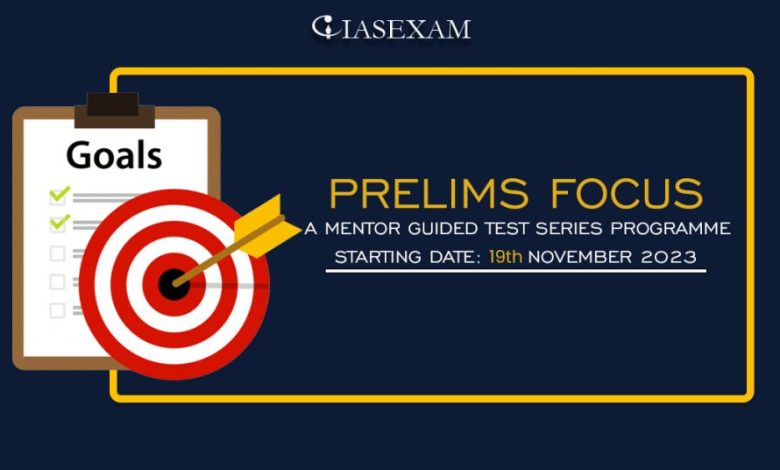Prelims Focus – 22nd March 2024

1.FLNAT
Recent News:
The FLNAT test, part of the ULLAS program, was carried out in 23 states for approximately 3.7 million learners to assess their foundational literacy and numeracy skills.
Details:
- The FLNAT is a test that assesses basic reading, writing, and numeracy skills. It will be administered in all districts of participating states and union territories at specific education institutes and schools.
- FLNAT’s objective is to provide certification for individuals who are unable to read or write and encourage the use of multiple languages, in accordance with the National Education Policy of 2020.
- The test consists of three sections – Reading, Writing, and Numeracy – each worth 50 marks, for a total of 150 marks.
- It is conducted in regional languages to support multilingualism and protect linguistic variety. Those who pass will receive certificates from the National Institute of Open Schooling (NIOS).
2.Star Tortoise
Recent News:
A recent study has revealed that Indian star tortoises in the wild are divided into two genetically separate groups, with one population found in northwestern India and the other in southern India.
Details:
- Star Tortoises have unique star-shaped markings on their shells and are highly sought after and illegally traded worldwide.
- The Indian Star Tortoise is native to the Indian subcontinent and can be found in two separate arid regions in northwestern and southern India.
- It is considered a vulnerable species according to the IUCN Red List and is listed under Appendix I of the CITES.
- India is creating a genetic database for the tortoise in order to aid in conservation efforts, similar to databases created for tigers and rhinos. This genetic information can help in making better decisions for seized tortoises, which are currently released into wildlife sanctuaries.
- The Indian Star Tortoise is currently threatened by both habitat destruction and a decrease in genetic diversity.
- Illegal trade has led to significant population declines, and improper translocations have caused genetic mixing between different groups of tortoises.
3.Negative Interest Rates
In News: Japan has ended its negative interest rate policy, as the Bank of Japan has raised its key interest rates, stepping away from the country’s negative interest rate policy.
- The term negative interest rate refers to interest paid to borrowers rather than to lenders. Negative interest costs are while important banks make their industrial counterparts pay to park their extra cash at the institution.
- This approach is typically adopted all through deflationary periods whilst consumers keep an excessive amount of money instead of spending as they wait for a turnaround in the economy.
- Consumers may also expect their cash to be worth more tomorrow than today during these periods. When this occurs, the economy can experience a pointy decline in demand, causing prices to plummet even lower.
- Experts believe that with a view to avoid the fees for parking the coins, banks use the money to lend more to corporations and clients, which, in turn, facilitates economic boom.
- These poor hobby costs were first delivered by Swedish Riksbank in 2009. This changed into followed by using others inclusive of the important banks of Denmark, Switzerland after which Japan.
4.Precision Oncology
In News: Developments in precision oncology require cancers to be classified based on their genetic characteristics.
- Traditional approaches to treating cancer – which include surgical operation and radiation – target the organs wherein the tumour is present.
- This exercise formed the idea of classifying cancers after the organ wherein they originate.
- Development in precision oncology calls for cancers to be categorized based on their molecular and genetic traits in place of the organ wherein they originate.
- Significance: It will reduce the time needed to run clinical trials.
- A trial for a drug focused on a particular genetic mutation will cover all cancer types with those mutations.
- Challenges: The proposed trade for classifying cancers can’t take place until sufferers can get right of entry to assessments that monitor molecular changes in their tumour.
- These assessments currently cost Rs 7,000-40,000 in Indian labs and as much as Rs 3 lakh abroad.
5.InvITS
In News: National Highways Authority of India (NHAI) has completed the third round of funding through its infrastructure investment trust (InvITs).
- It is a Collective Investment Scheme like a mutual fund, which allows direct investment of cash from character and institutional investors in infrastructure initiatives to earn a small portion of the income as return.
- The InvIT is designed as a tiered shape with Sponsor setting up the InvIT which in turn invests into the eligible infrastructure initiatives either directly or through unique motive vehicles (SPVs).
- The InvITs are regulated by the SEBI (Infrastructure Investment Trusts) Regulations, 2014.





.png)
